Module 1 Unit 2 (Speaking)
文档属性
| 名称 | Module 1 Unit 2 (Speaking) |
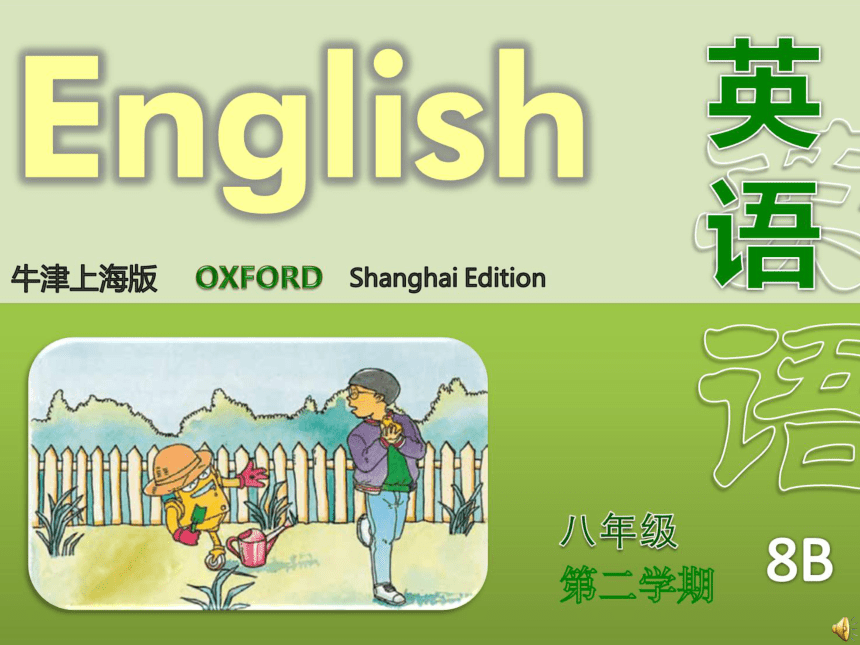
|
|
| 格式 | zip | ||
| 文件大小 | 12.6MB | ||
| 资源类型 | 教案 | ||
| 版本资源 | 牛津上海版(试用本) | ||
| 科目 | 英语 | ||
| 更新时间 | 2013-03-04 00:00:00 | ||
图片预览

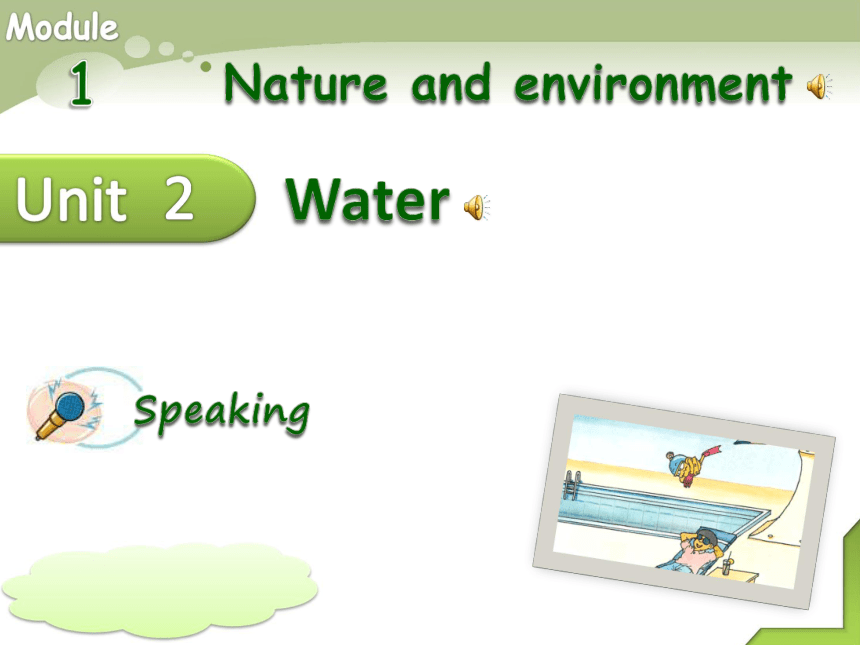
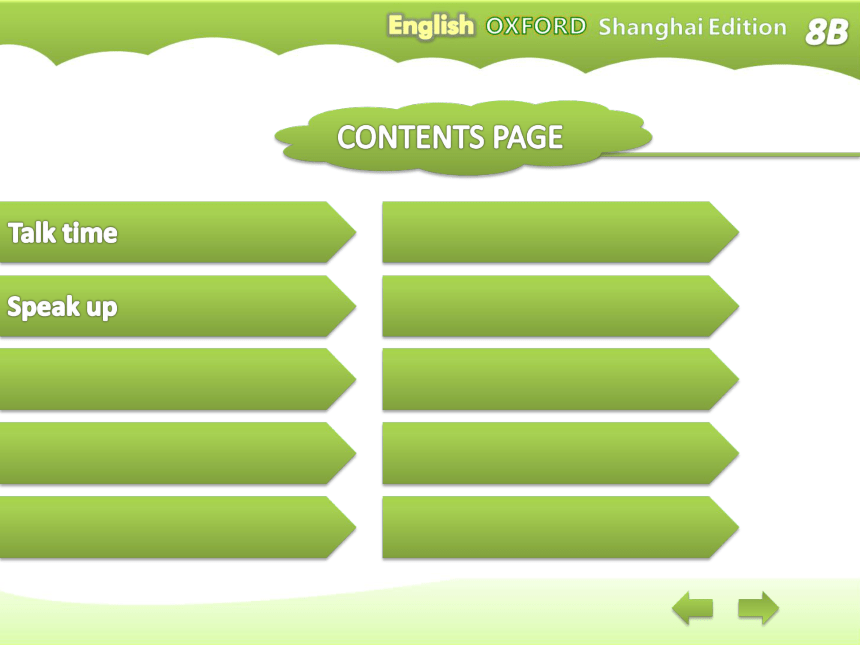
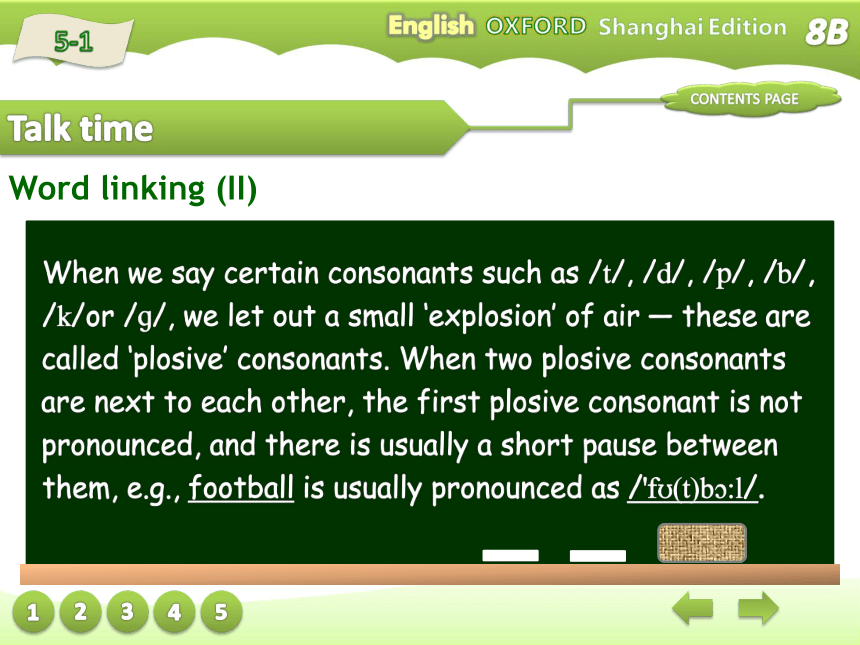

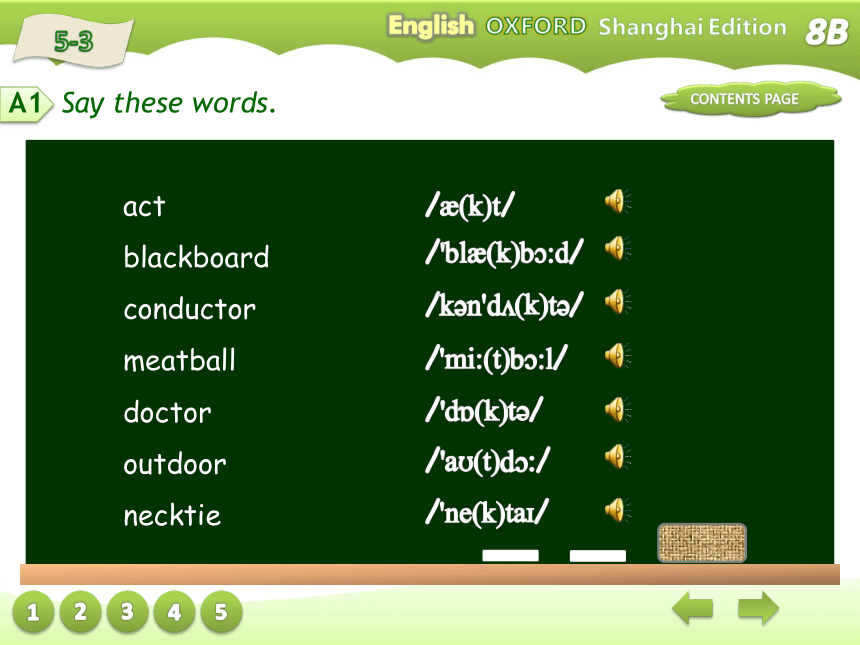
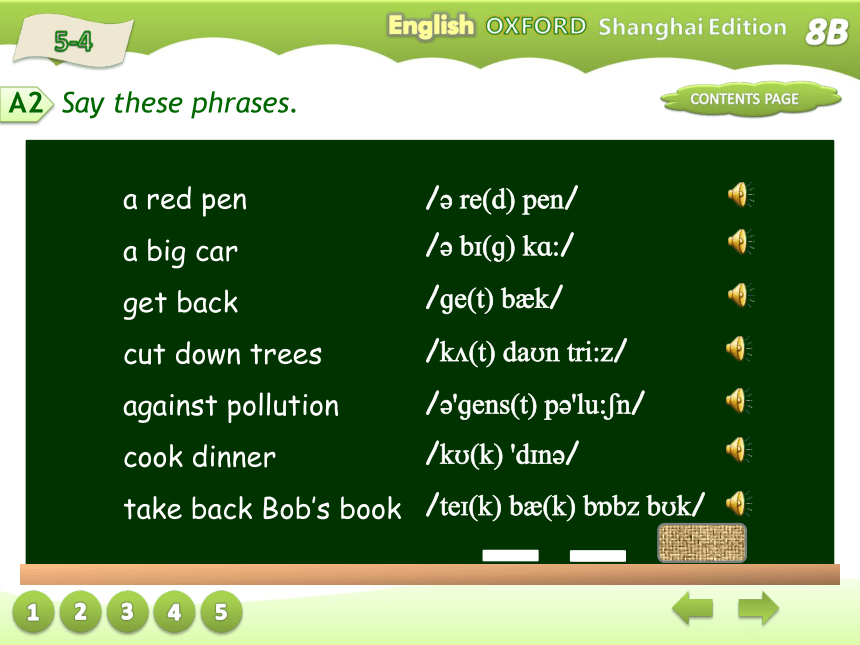
文档简介
课件18张PPT。1Nature and environmentWaterSpeaking2Talk timeSpeak upCONTENTS PAGETalk timeWord linking (II)5-112When we say certain consonants such as /t/, /d/, /p/, /b/, /k/or /ɡ/, we let out a small ‘explosion’ of air ― these are called ‘plosive’ consonants. When two plosive consonants are next to each other, the first plosive consonant is not pronounced, and there is usually a short pause between them, e.g., football is usually pronounced as /'f?(t)b?:l/.3455-212Examples:
football
captain
practice/'f?(t)b?:l/345/'k?(p)t?n//'pr?(k)t?s/5-312345A1 Say these words.act
blackboard
conductor
meatball
doctor
outdoor
necktie/?(k)t//'bl?(k)b?:d//k?n'd?(k)t?//'mi:(t)b?:l//'d?(k)t?//'a?(t)d?://'ne(k)ta?/A2 Say these phrases.5-412345a red pen
a big car
get back
cut down trees
against pollution
cook dinner
take back Bob’s book/? re(d) pen//? b?(ɡ) kɑ://ɡe(t) b?k//k?(t) da?n tri:z//?'ɡens(t) p?'lu:?n//k?(k) 'd?n?//te?(k) b?(k) b?bz b?k/A3 Say these sentences.Good boy!
Sit down.
She can t come.
Stop talking!
Glad to meet you./ɡ?(d) b??//s?(t) da?n//?i: kɑ:n(t) k?m//st?(p) t?:k??//ɡl?(d) t? mi:t ju/5-512345Speak up6-112The use of waterLook at these pictures and tell what people usually use water to do.3At homeAt work456B1 Work in groups of five or more. S1 is in charge of the water in your city. The other students must represent one of the groups below.6-2123Suppose it hasn’t rained for many months. There is very little water in your city.S2 — ordinary people
S3 — restaurant owners
S4 — hospital managers
S5 — factory owners456Each student must tell S1 why their group of people need water most and explain how they will use it. You can use some of the words and patterns below to help you.6-3123WORDSdrinking washing manufacturing
cooking cleaning bathingPATTERNSWe need water for washing/drinking/cleaning …
It is very important because …
If we do not have water, … will …
We can save water by … 456[For your reference]
Homes: drinking, washing clothes, cooking food, bathing, washing hands and faces, cleaning dishes and floors, watering plants, flushing toilets
Restaurants: cooking, cleaning dishes/kitchen/floors, serving to customers, flushing toilets
Hospitals: cleaning equipment/floors/bedding, cooking food for patients, bathing patients, flushing toilets
Factories: manufacturing, cleaning machines and floors, flushing toilets6-4123456B2 S1 must decide how long each group of people can have water for each day. You may follow the example below.6-5123NOTETo save water, the total, for everyone added together, must not be more than six hours per day. The water must be off for 18 hours per day.Factories can have water for … minutes/hours every day.456B3 Each group should make a list of S1’s decisions and report their list to the class, giving reasons for S1’s choices.6-6123*456ordinary/'?:dnr?/adj.common; not special or unusualIt was a very ordinary day today.
I don’t think I’m special at all. I’m an ordinary girl.manufacture/?m?nju'f?k??(r)/v.make things in a factory using machinesCars are manufactured in that factory.
Vitamins cannot be manufactured by our bodies.equipment/?'kw?pm?nt/v.special things that you need for doing special tasksA good sleeping bag is an essential part of every camper’s equipment.
Firemen use breathing equipment to protect themselves in smoking places.tool/tu:l/n.a thing that you hold in your hand and use to do a special jobHammers and saws are tools.
Always select the right tool for the job.
football
captain
practice/'f?(t)b?:l/345/'k?(p)t?n//'pr?(k)t?s/5-312345A1 Say these words.act
blackboard
conductor
meatball
doctor
outdoor
necktie/?(k)t//'bl?(k)b?:d//k?n'd?(k)t?//'mi:(t)b?:l//'d?(k)t?//'a?(t)d?://'ne(k)ta?/A2 Say these phrases.5-412345a red pen
a big car
get back
cut down trees
against pollution
cook dinner
take back Bob’s book/? re(d) pen//? b?(ɡ) kɑ://ɡe(t) b?k//k?(t) da?n tri:z//?'ɡens(t) p?'lu:?n//k?(k) 'd?n?//te?(k) b?(k) b?bz b?k/A3 Say these sentences.Good boy!
Sit down.
She can t come.
Stop talking!
Glad to meet you./ɡ?(d) b??//s?(t) da?n//?i: kɑ:n(t) k?m//st?(p) t?:k??//ɡl?(d) t? mi:t ju/5-512345Speak up6-112The use of waterLook at these pictures and tell what people usually use water to do.3At homeAt work456B1 Work in groups of five or more. S1 is in charge of the water in your city. The other students must represent one of the groups below.6-2123Suppose it hasn’t rained for many months. There is very little water in your city.S2 — ordinary people
S3 — restaurant owners
S4 — hospital managers
S5 — factory owners456Each student must tell S1 why their group of people need water most and explain how they will use it. You can use some of the words and patterns below to help you.6-3123WORDSdrinking washing manufacturing
cooking cleaning bathingPATTERNSWe need water for washing/drinking/cleaning …
It is very important because …
If we do not have water, … will …
We can save water by … 456[For your reference]
Homes: drinking, washing clothes, cooking food, bathing, washing hands and faces, cleaning dishes and floors, watering plants, flushing toilets
Restaurants: cooking, cleaning dishes/kitchen/floors, serving to customers, flushing toilets
Hospitals: cleaning equipment/floors/bedding, cooking food for patients, bathing patients, flushing toilets
Factories: manufacturing, cleaning machines and floors, flushing toilets6-4123456B2 S1 must decide how long each group of people can have water for each day. You may follow the example below.6-5123NOTETo save water, the total, for everyone added together, must not be more than six hours per day. The water must be off for 18 hours per day.Factories can have water for … minutes/hours every day.456B3 Each group should make a list of S1’s decisions and report their list to the class, giving reasons for S1’s choices.6-6123*456ordinary/'?:dnr?/adj.common; not special or unusualIt was a very ordinary day today.
I don’t think I’m special at all. I’m an ordinary girl.manufacture/?m?nju'f?k??(r)/v.make things in a factory using machinesCars are manufactured in that factory.
Vitamins cannot be manufactured by our bodies.equipment/?'kw?pm?nt/v.special things that you need for doing special tasksA good sleeping bag is an essential part of every camper’s equipment.
Firemen use breathing equipment to protect themselves in smoking places.tool/tu:l/n.a thing that you hold in your hand and use to do a special jobHammers and saws are tools.
Always select the right tool for the job.
